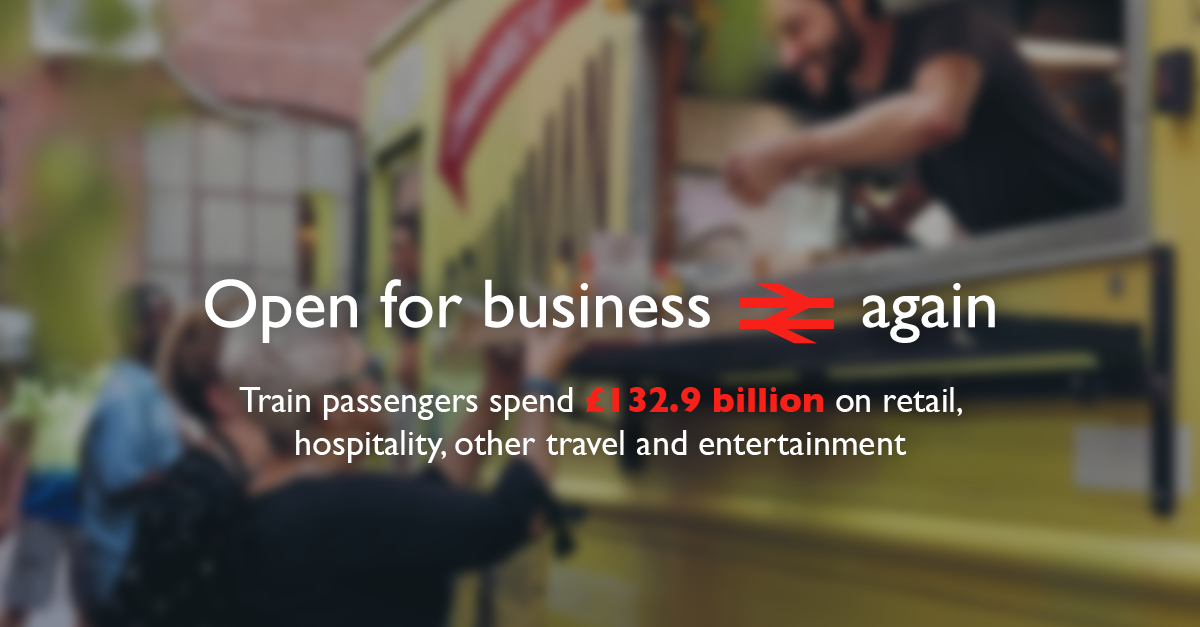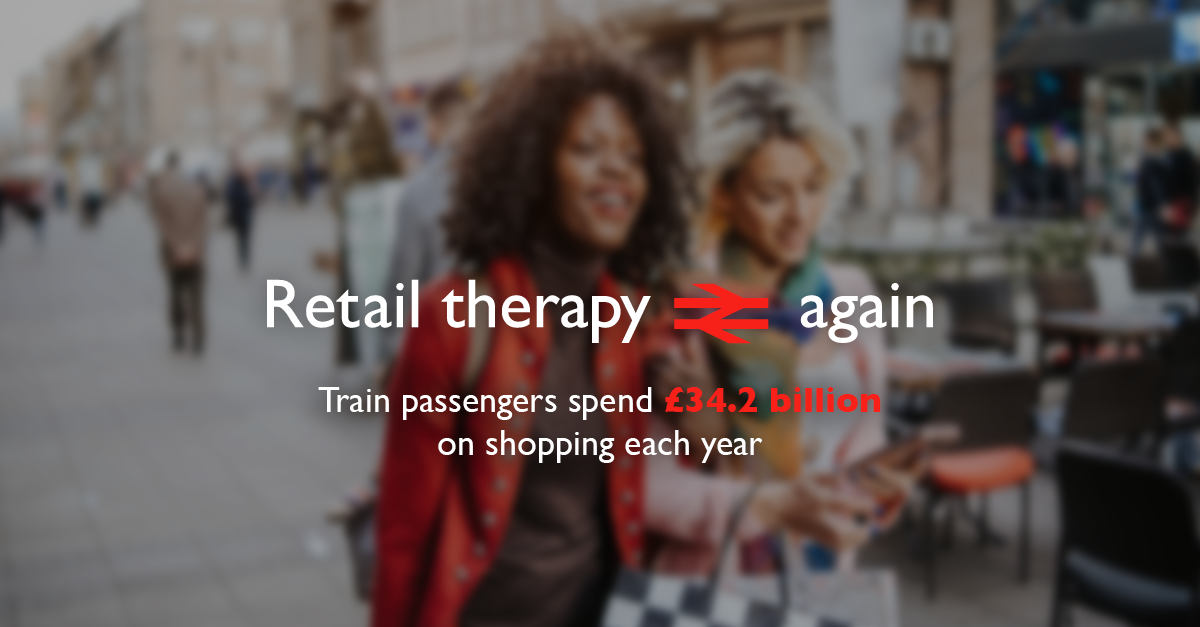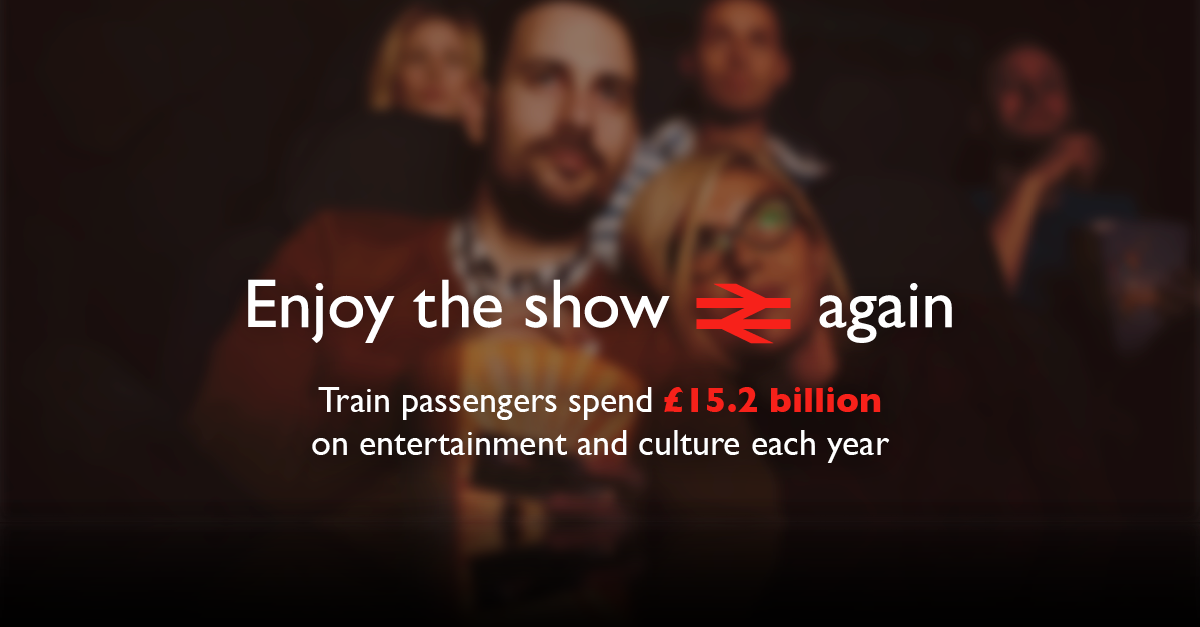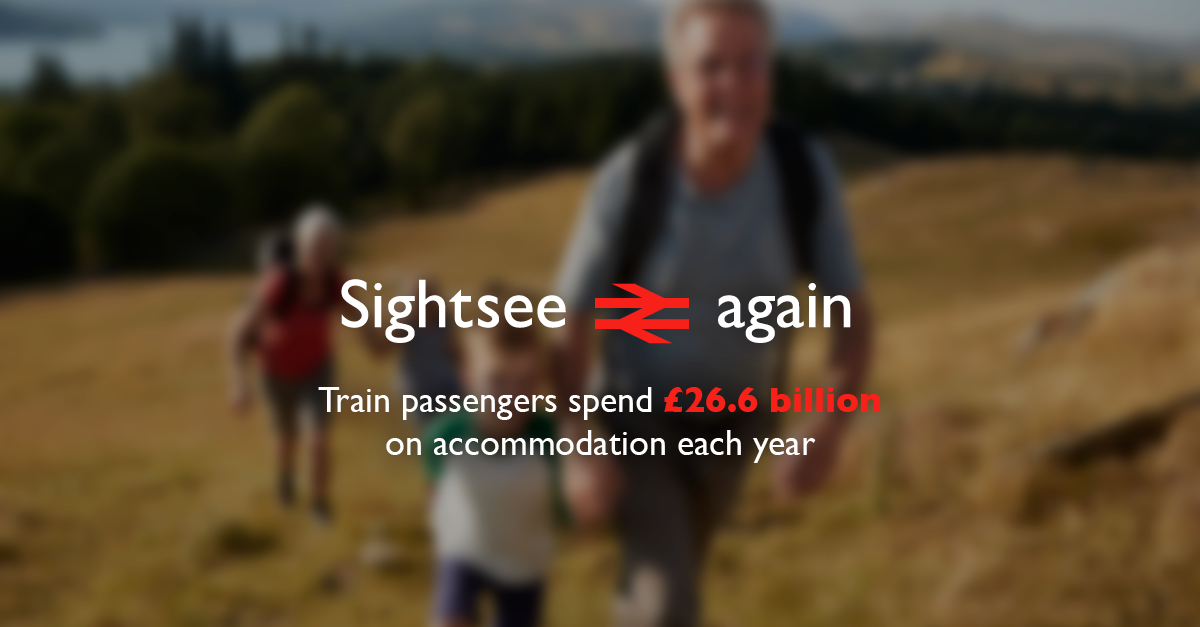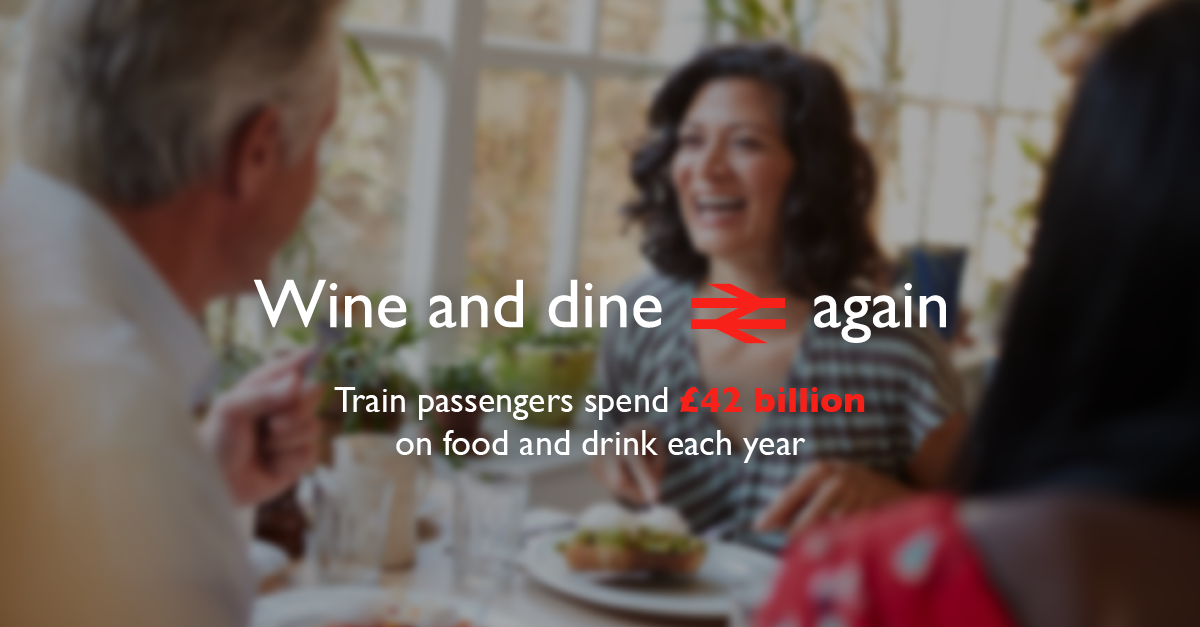
More than a journey
The railway’s value to a fair, clean recovery for communities across Britain.
With passenger numbers having fallen by up to 95% during the pandemic, in June of this year the Rail Delivery Group asked WPI Economics to undertake research to examine the impact that a sustained fall in rail travel would have on the economy, communities and the environment in the different regions, cities and nations of Great Britain – and what the opportunities would be for the country in winning those passengers back.
The full report by WPI Economics is visible here.
Boosting local businesses
Travel by rail, whether for leisure or work, makes a significant contribution to the national economy. In Great Britain total spending associated with rail travel was around £133bn per year pre-pandemic (not including rail fares) as the average passenger spends as much as £94 per journey on other activities. Rail travel supports, and will be critical to, the future economic recovery of a number of other sectors.
Prior to the pandemic every year rail users boosted the economy by spending a total of £133 billion:

£42 billion spent on food and drink

£34 billion spent on shopping

£27 billion spent on accommodation

£15 billion spent on entertainment and culture

£15 billion spent on other transport
“Being only steps from York train station puts us at a unique advantage, allowing for a seamless journey for our guests who travel to us via rail. We can see first-hand the considerable benefits that rail brings to our city, and we very much look forward to welcoming a return to normal service, and the perks it generates for our local economy and communities.”
“The pandemic has really taken its toll on small businesses, not just in Bath but throughout the country. A return to rail will have an immensely positive impact on the fortunes of our business and many others in the area. I’m excited for the next chapter and to help many more people discover this fabulous city using their tastebuds.”
“A lot of people dont' come by car anymore, they want to use public transport and rail is the perfect way of getting to Manchester. Once people feel freer to travel on the network, the connections are already very good, I think we'll see a sharp increase in business for Manchester, so a very positive future ahead.”

"We must harness the railway’s unique ability to support a better future."
Benefiting passengers and broader society
The railway brings a range of benefits both to passengers and freight customers who use trains but also to broader society. WPI asked the public and businesses to put a price on how much they value the railway by saying what, if anything, they would be willing to pay in tax to maintain the network.
Estimated value of the indirect benefits to society of the railway

Perceived value
-
Households - £2.9 billion
-
Businesses - £1.2 billion
Key benefits:
- Access to work, leisure and other opportunities
- Benefits of business travel and moving goods by freight
- Ability to work on train
Spreading benefits nationwide
Total pre-pandemic spending by rail passengers in different regions includes:

Scotland - £8,490m
Including:
£2,810 million on food and drink
£2,090 million on shopping
£1680 million on accommodation
£850 million on entertainment and culture
South-East - £19,690m
Including:
£6,260 million on food and drink
£6,170 million on shopping
£2,920 million on accommodation
£2,160 million on entertainment and culture
East Midlands - £5,740m
Including:
£1,370 million on food and drink
£1,960 million on shopping
£1,250 million on accommodation
£700 million on entertainment and culture
London - £54,190m
Including:
£18,030 million on food and drink
£11,810 million on shopping
£11,890 million on accommodation
£5,590 million on entertainment and culture
North-East - £1,440m
Including:
£560 million on food and drink
£320 million on shopping
£340 million on accommodation
£70 million on entertainment and culture
South-West - £5,530m
Including:
£1,600 million on food and drink
£1,670 million on shopping
£1,050 million on accommodation
£610 million on entertainment and culture
North-West - £8,990m
Including:
£2,460 million on food and drink
£2,930 million on shopping
£1,890 million on accommodation
£1,080 million on entertainment and culture
Wales - £4,840m
Including:
£1,450 million on food and drink
£1,140 million on shopping
£1,280 million on accommodation
£590 million on entertainment and culture
West Midlands - £6,400m
Including:
£1,920 million on food and drink
£2,150 million on shopping
£930 million on accommodation
£800 million on entertainment and culture
East of England - £12,290m
Including:
£4,070 million on food and drink
£2,430 million on shopping
£2,290 million on accommodation
£2,140 million on entertainment and culture
Yorkshire & The Humber - £5,320m
Including:
£1,470 million on food and drink
£1,580 million on shopping
£1,120 million on accommodation
£590 million on entertainment and culture
-
utensils
-
shopping-bag
-
concierge-bell
-
theater-masks
The full report by WPI Economicsis visible here.
Getting Britain back on track
Estimated average spending per journey by rail passengers travelling for leisure was:
-

Seaside towns and leisure destinations - £117
-

Rural areas - £83
-

Towns - £76
-

Cities - leisure journeys £114, commuter journeys £44
Rail is vital to reaching net zero ambitions
The annual impact if 20% of rail usage switches to car:
-

An extra 1 million tonnes of CO2 emissions per year
-

300 million hours of lost time due to increased congestion.
Making a fair, clean recovery a reality
The full report by WPI Economicsis visible here.
